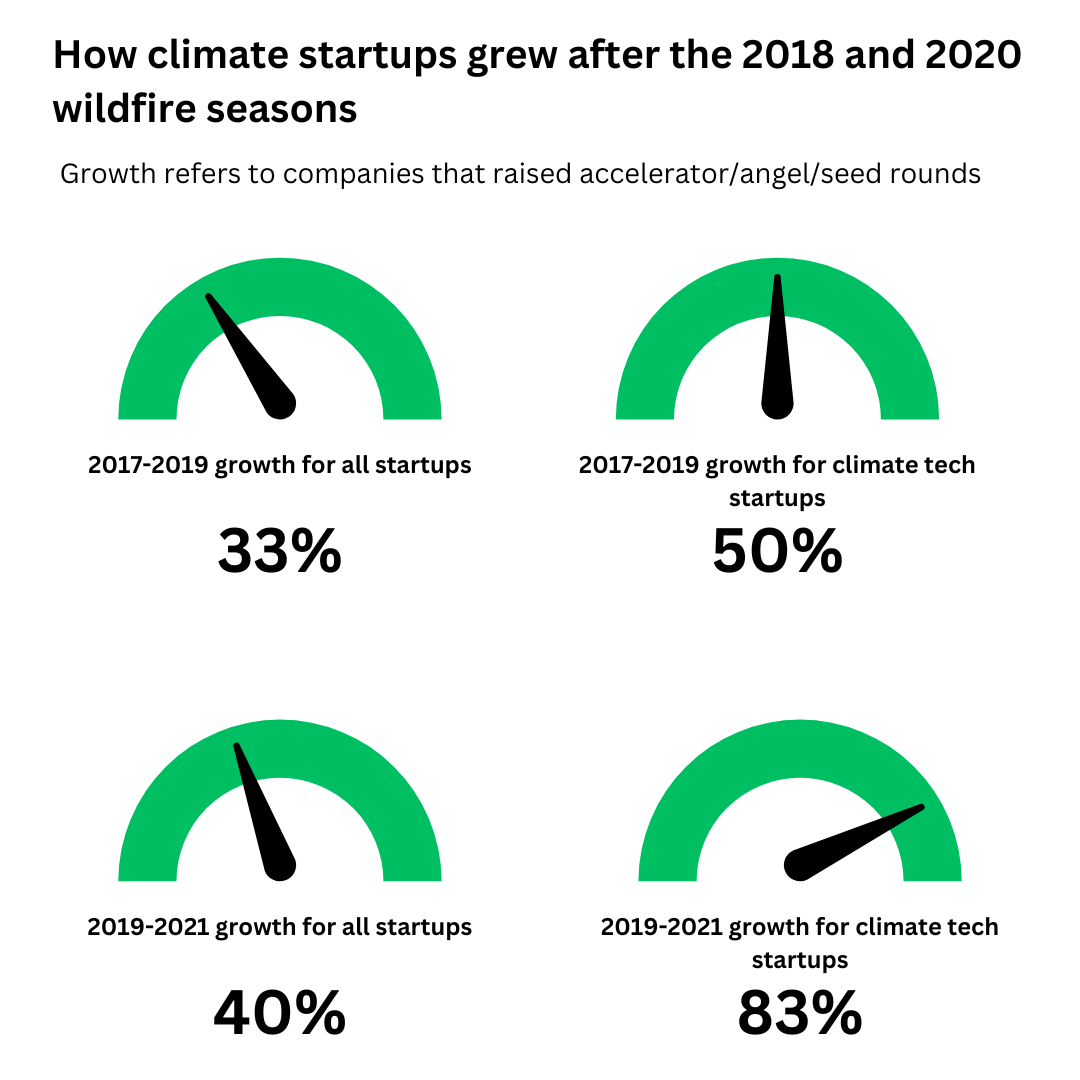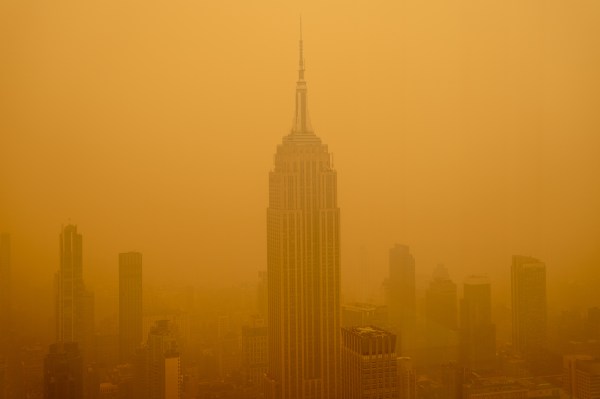As smoke from Canadian wildfires has enveloped large swathes of the East Coast, millions of people have found themselves trapped inside, gazing out on orange skies and hazy cityscapes. The air quality index — which is usually ignored — has suddenly become an object of fascination and source of small talk.
It’s all remarkably similar to what happened on the West Coast three years ago, when skies there turned a sinister hue and people rushed to seal their windows and buy air purifiers. If the past is prologue, then investors should prepare themselves for a tidal wave of climate tech startups next year.
There’s no doubt that the 2020 fire season on the West Coast had a profound impact on a number of founders. Several have told TechCrunch+ that the apocalyptically orange skies of that summer played a large role in their decision to quit their previous jobs and start companies focused on addressing the climate crisis.
That anecdotal evidence is borne out in the data, too. Following two historically devastating fire seasons — 2018 and 2020 — there was a surge in climate tech startups up and down the West Coast.

Image Credits: Miranda Halpern
The 2018 fire season helped drive West Coast founders to launch 50% more climate tech companies in 2019 than in 2017, compared with just 33% more across all sectors, according to a TechCrunch+ analysis of PitchBook data of accelerator, angel and seed rounds. The 2020 fire season spurred West Coast founders to kickstart 83% more companies in 2021 than 2019, more than double the rate of growth for all startups at the same stage.
If those numbers translate to the East Coast climate tech scene, then next year we might expect anywhere between 30 and 35 new companies to emerge.
Alone, those figures aren’t earth shattering. But they’re a significant bump over the status quo. And who knows, maybe one of those startups will be sitting on an idea that’ll cut a gigaton of carbon pollution — enough to make a significant dent in the problem. It won’t stop future fire seasons on its own, but it might give us all a few years of breathing room between them.
